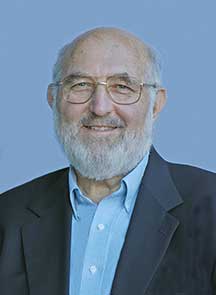 |
Previous Issues |
| Cedar Mill Community Website |
|
Search the Cedar Mill News: |
About The Cedar Mill News |
|
|||||||
| Volume 13, Issue 5 | May 2015 |
||||||
The Mitch Message
|
||||
 |
| Mitch Greenlick |
There was an article in the Oregonian a few weeks ago commenting on the extreme partisan nature of the legislature. As I read the article it did not seem to accurately reflect the situation as I have observed it, although I noticed almost every quote was about partisanship in the Senate. The article really got me thinking. My experience is from being in both the minority and the majority. I have served two terms in the minority, four terms in the majority and one term in a House tied 30-30. Two things come immediately to mind. First there is a difference between being in the minority and the majority. Second, Democrats and Republicans tend to look at things differently in many ways, especially around the role of government.
Certainly the majority matters. The majority party controls the process, naming the speaker and all of the committee chairs. The committee chairs have a lot of power over the legislative agenda, controlling which bills get a hearing and which are brought to a vote. That power can be used to facilitate collaboration, or sometimes, not so much. Sometimes the philosophical differences between the Ds and the Rs matters a great deal, but mostly it is not the determining factor on the votes on specific bills.
My intern did an analysis of the first 100 sponsored bills (not bills introduced by a committee) that passed out of the House. Each bill has a set of chief sponsors—the people who craft the bill and help it move through the process. A bill generally has from one to three chief sponsors, and usually has some number of co-sponsors. Of the first 100 bills that passed out of the House, 46 had at least one Republican chief sponsor.
You do not read about those bills in the Oregonian. The news media covers the dramatic partisan fights on the floor debating those bills the majority believes need to move and the minority presents solid opposition. That is in a small minority of bills, but even on those bills, the debate is usually calm and relatively cordial. That was not always the case. One session when I was in the minority, the majority would quickly cut off debate on many bills, causing a great deal of frustration. I do not remember a motion to cut off debate in the last four sessions. We have had debates this session that have lasted for more than three hours. But every member had a chance to voice their opinion.
In summary, it is obviously better to be in the majority, but it is my experience that there is a consistent effort to give minority House members access to the process and to value their input.
An interesting example of collaboration was the process for considering HB 2300, a bill sponsored by the House Health Care Committee. This bill was referred to as the “right to try” bill. It would allow people with terminal medical conditions to get access to drugs that are in the FDA approval process, but have not yet been approved. I worked on this bill, which had strong support from the Cascade Policy Institute, a local conservative think tank. It also had support from the left. I asked Rep. Knute Buehler, a Republican from Bend and a physician, to lead the effort to perfect the bill. He worked out a bill acceptable to the various interest groups. The bill passed out of the committee unanimously. Rep. Buehler carried the bill on the floor of the House where it passed 59-0. That has been a common situation in my committee. The committee has been very effective this year, to some extent because of the effort of the Republican members, including a physician, a dentist, and a psychologist.
April marked the halfway point in the regular session. At this time the House begins to consider bills that have passed out of the Senate. One such major Senate bill is SB 941, the gun background check bill. We have already gotten hundreds of emails and phone calls on that bill. Consequently, I am expecting an exciting few days as the bill gets House consideration. While most of my SB 941 messages have not come from my constituents, I have tried to respond to those that have. But whatever your position on this, or other matters, I appreciate hearing from my constituents. Phone: 503-297-2416; email: Rep.MitchGreenlick@state.or.us
![]()
Like us on Facebook for timely updates
Published monthly by Pioneer Marketing & Design
Publisher/Editor:Virginia Bruce
info@cedarmillnews.com
PO Box 91061
Portland, Oregon 97291
© 2013